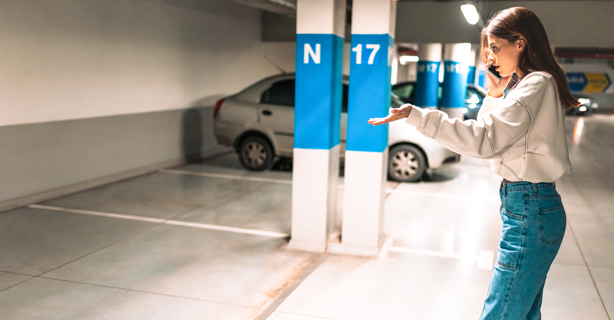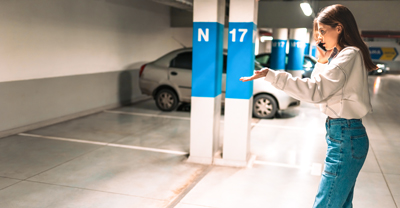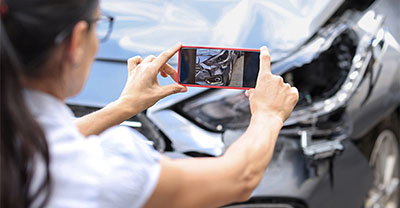Does car insurance cover theft? You need to have the right coverage.


0 min. read
Even as technology and security features grow more sophisticated, over a million cars are stolen every year.
If you’ve recently had your car stolen, suffered damage from a car break-in, or had items stolen out of your vehicle, you may be wondering whether you’re adequately covered—and, if so, which car insurance coverages apply to theft. In most cases, comprehensive coverage will help cover the theft and theft-related damage to your vehicle. However, items stolen from your vehicle are classified as personal property and may be covered by your homeowners or renters policy. Explore Dairyland’s cheap car insurance options to find the coverage that fits your lifestyle and budget.
Car theft and comprehensive car insurance
While comprehensive auto insurance isn’t required by your state, adding it to your policy is a smart investment. Comprehensive insurance can help pay for unavoidable incidents unrelated to an accident or collision with another vehicle or object—including vehicle theft. Along with theft, comprehensive coverage typically covers damage caused by the following:
Falling objects
Weather
Fire
Natural Disaster
Vandalism

Understand the differences and similarities so you’re properly covered when you need it most.
Am I covered if my car is stolen with “full coverage” car insurance?
You may think that because you have a “full coverage” car insurance policy, everything is covered. But the term can be misleading.
“Full coverage” is often used to describe a group of coverages under one policy—not a specific kind of coverage in itself. The term typically refers to the combination of bodily injury liability and property damage liability, collision, and comprehensive insurance. As such, most “full coverage” policies will include coverage for the theft of your vehicle, but be mindful that insurers don’t all interpret “full coverage” the same way.
Does car insurance cover car upgrades and extras?
A typical car insurance policy that includes comprehensive coverage will only cover equipment upgrades from the manufacturer.
If you enjoy customizing your vehicle, you know that enhancements like a sound system or engine modifications can be expensive to fix. If you’re looking for additional coverage, many auto insurance providers offer supplemental coverage for custom parts and equipment. The insurer will add an endorsement to your policy to increase the coverage limit—but it will likely come with an increased premium as well.
Dairyland offers special equipment coverage that can help pay for the custom touches you’ve added to your car if they get wrecked in a crash. Certain restrictions may apply, so be sure to talk your coverage through with your agent.

FAQs How does car insurance cover theft?
How much will insurance pay for a stolen car?
That depends on several factors. Some insurance companies offer new car replacement coverage, which can pay the cost of purchasing a new car. But typically, your insurance provider will use the actual cash value (ACV) to determine your payment.
ACV is the amount of money your car is worth today as determined by your vehicle's condition, age, and market value. The best way to estimate your ACV is to use a resource like Kelley Blue Book to get a sense of what your vehicle and similar vehicles are worth and then factor in damages, upgrades, and mileage, which can decrease or increase the value of your car.
What happens if your car is stolen and you still owe money?
Nearly 80% of new and 40% of used vehicles* in the United States are purchased with some form of financing. And most financing companies require borrowers to protect the company’s investment by carrying comprehensive insurance. That’s one major reason why nearly 80 percent of drivers* have comprehensive insurance, even though it isn’t a state-mandated coverage.
If your leased or financed car is stolen, comprehensive coverage will go to your lender or the dealer to help pay off any remaining balance. Financed cars can pose a unique risk to borrowers, however, since comprehensive coverage typically pays out the ACV of your vehicle rather than the replacement cost.
Brand-new cars depreciate around 10% the first time you drive them off the lot and generally continue to depreciate over time. That means that while you may still owe the total balance, your vehicle may no longer be worth that amount and you could find yourself owing the difference between the amount of your lease and the ACV.
To counteract this, Guaranteed Asset Protection (GAP) coverage, also called lienholder coverage, can help pay the difference between the ACV and your loan or lease balance. Many lenders and dealerships offer GAP insurance with the purchase of a vehicle.
Does car insurance cover stolen car parts?
Along with vehicle theft, comprehensive auto coverage typically covers the theft of parts of your vehicle—such as rims and tires, airbags, or catalytic converters.
If you’ve made significant upgrades to your car (such as an expensive stereo system), reach out to your insurance agent to ensure that your coverage limit is high enough to cover those upgrades. While comprehensive coverage generally applies to permanently attached accessories like rims or other aftermarket upgrades, some policies have specific exclusions or limitations on the coverage of these upgrades. You may also be required to purchase additional coverages for expensive additions.
Does car insurance cover theft of personal items from your car?
As a rule of thumb, your car insurance only covers losses related to your car itself. Car insurance will usually pay for the damage done to your vehicle while someone breaks in to steal your belongings—like broken windows, handles, ignition, or locks. If a personal item is stolen from your car, it will likely be covered by your homeowners or renters insurance, not your comprehensive car insurance.
What happens if my car is stolen and then recovered?
This really depends on where you are in the claims process. If your theft claim is still being processed and you have not received a payout, let the insurance company know and they can reevaluate the situation. If the car is a total loss, they can continue as if it was never recovered. But, if there are only minor damages, the insurer can pay for covered repairs instead, and you can keep your car.
If your theft claim has already been processed and you have received a payout, the car now belongs to the insurance company. The insurer can invoke their salvage rights and sell the vehicle to recoup some of their costs.
What do you do if your car is stolen?
As soon as you confirm your car is stolen, don’t hesitate—act fast to maximize the chance of recovery and speed up the claims process. Review the basics below, and then check out our full guide of what to do if your car is stolen.
Report the theft. First things first: Call the police to report the theft. Then, after you’ve notified the police and filed a report, call your insurance company to report the theft. This is important because it can significantly expedite the claims process.
Document the theft. Photograph and document any details about the theft of your car. That could include photographing the crime scene and location the vehicle was stolen from, as well as writing down your recollection of events while they’re still fresh in your mind.
Follow up with your insurance company. Once you’ve filed a report with the police and a claim with your insurance company, maintain consistent communication with your insurance company to track the status of your claim.
The general information in this blog is for informational or entertainment purposes only. View our blog disclaimer.
*Data accuracy is subject to this article's publication date.










